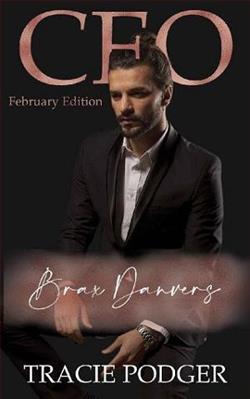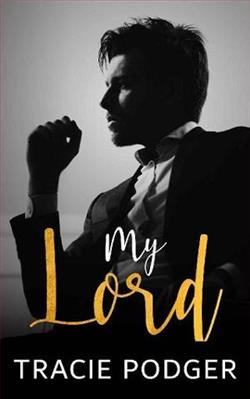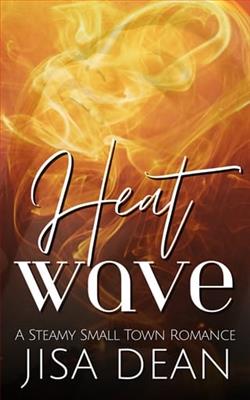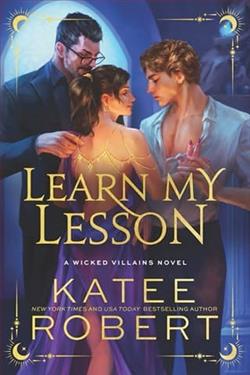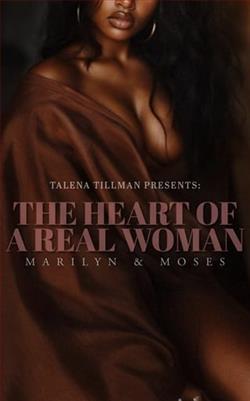Page 33 of Badlands
“The first body was found in the Ah-shi-sle-pah Wash badlands—right?”
“Yes.” She’d never heard anybody actually pronounce the name before.
“This spot is even more remote.”
Corrie already knew the site was difficult to reach. Too remote for a drone, far from a road or trail, and in a wilderness area that precluded motorized transport, even if it were possible. Horses were the way to go; for help, Corrie had turned to Watts, who had good horses and a lifetime of experience in the saddle. The plan was to find the body, process the site, gather evidence, and then call in an FBI chopper to drop a litter and airlift out the body and evidence.
She swallowed. Of course, there was no certainty yet that this corpse was connected in any way with Molly Vine. But simply looking at the blurred images taken from the helicopter convinced her it wasn’t going to turn out to be a coincidence.
Watts slowed and swung the big Dodge Ram into a turnoff, sending up roiling clouds of dust as he came to a stop. He glanced in the rear-view mirror. “There’s a trailhead, King of Dreams, a little closer at the wilderness boundary. But the road to it is too rough for a trailer.” He unfastened his seat belt, looked at his watch. “Let’s unload the horses and saddle up.”
Within ten minutes he had the horses ready to go. Corrie couldn’t help but notice his affection and pride for the animals as he murmured and stroked them while putting on the saddles and cinching them up.
“Ready?” he asked, holding the bridle of Corrie’s horse.
“Sure,” Corrie said, trying to sound confident, as she contemplated the large, powerful beast, who was eyeing her as well with bright eyes and perked ears. She was intimidated by horses, but she didn’t want to show any sign of it. She fitted her boot to the stirrup, gripped the saddle horn and reins, and hoisted herself up, hoping she didn’t look too awkward.
Watts checked her cinch for tightness. “His name’s Jackaroo,” he said, patting the horse’s neck and letting go of the bridle. She walked the horse away from the trailer and turned, watching Watts check the panniers on the pack horse and his own saddle rigging. He then swung himself lightly onto his horse, which she gathered from his soft chatter to the animal was named Chaco. He took a final look around, consulted a map tucked into a pouch hung off the saddle horn, then clicked his tongue to set Chaco off at a fast walk, trailing the pack horse on a lead rope held in his right hand. Corrie followed behind. Despite her lack of experience, she could tell Homer had taken care in choosing an animal for her. Jackaroo was a well-built paint with what felt like an amiable character. Some horses she’d ridden were quick to take advantage of an inexperienced rider—but as she followed Homer along a dry wash and into a labyrinth of hoodoos, she could tell Jackaroo was too well trained for that.
The air was hot and dry, but not unbearable, and it smelled of dust and sagebrush. The terrain reminded Corrie of her walk to the first body—scattered with toadstool rock formations, giant nodules, and swellings of sandstone like warped stonetrees. The formations were crowded together, and it was hard not to feel claustrophobic. Within a few minutes she’d completely lost her sense of direction and was reliant on Homer, who stopped now and then to glance at his map, adjust his hat, then move on.
“Don’t you have a GPS?” she asked, as he checked the map yet again.
“I’m old-fashioned,” he said, “and besides, the batteries in my map last forever.”
“Have you ever had a case like this before, someone who died in the desert?” she asked, trying to shake off her sense of unease.
“Oh, yeah,” he said. “There’s even a medical term for it—‘desert death.’ It’s not as studied as it should be. You won’t find much literature about it.”
“Why is that?”
Watts shrugged. “There are all kinds of deserts in the world, each with its own set of dangers. Here in New Mexico, for example, you’ve got hypothermia, hyperthermia, envenomation, lightning strikes, dehydration, quicksand, and flash floods. And that’s just a starter.”
“And your experience?”
“I’ve personally dealt with two,” he said after a moment. “One was a fiftyish hiker who missed the trail, wandered miles in search of water after his canteen ran dry, then finally gave up, sat down with his back against a rock, and died. A lot of inexperienced people just don’t realize how quickly you can die of thirst. The other was a dirt bike rider, a crazy kid who went out into the desert just to crank the throttle and raise dust. Got way the hell out there, took a spill, and punctured his gas tank, putting him on foot. Took days to find the body.”
“But I mean, any murders or suicides? Like this one?”
Watts gave a chuckle. “No suicides, one murder. Meth killing in Albuquerque, body dumped in my county. We basically followed the tire tracks back to their meth lab in the South Valley. Those meth guys can’t do anything right, even murder.”
Watts stopped to check the map again, reorient himself in the alien landscape, and then clucked Chaco into motion. “See that mesa over there?” he asked, pointing to a distant rim of sandstone barely visible over the intervening cones and hoodoos. “That’s where we’re headed.”
They rode in silence awhile before he spoke again. “I do remember as a kid, when my pa was sheriff, he had a few head-scratchers. Bones in the desert. Excepting migrant deaths, that stuff was more common then than it is now.”
“Accidents, you mean?”
“Anything. Take a person far enough into the desert, strangle them, dump the body… in a year, maybe less, Mother Nature will make sure there’s no obvious cause of death.”
No obvious cause of death. “That’s one thing that troubles me,” Corrie told him. “Molly Vine knew the desert. But she walked straight out into it, without water, shedding her brand-new clothes as death approached.”
“It feels to me like a suicide. But it must be said: heatstroke can make people do crazy things.”
They’d just made a tight turn around a precarious-looking hoodoo and were climbing up an embankment. At the top, he motioned for Corrie to stop, then pointed. Not far away, beyond the last of the hoodoo rocks, rose the mesa he’d pointed out earlier. Ruins of prehistoric dwellings could be seen along its rim. It was surrounded by a number of cone-shaped hills, each topped with a ruined structure of its own.
“Welcome to Pierre’s Ruins,” Watts told her. “Three greathouses, several kivas, and more smaller dwellings than you can count on both hands. That large, central roomblock on the big mesa is known as the Acropolis.”
“How do you know this?”









